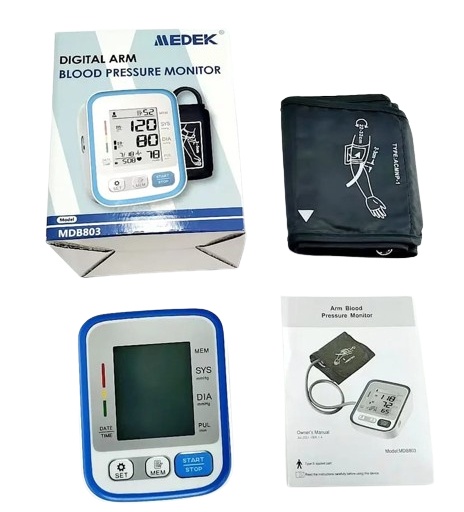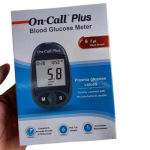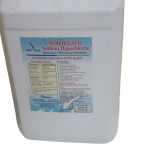Did you know that regularly monitoring your blood pressure could be a life-saving habit? That’s right! In this article, we will unveil 10 surprising reasons why keeping a close eye on your blood pressure levels could potentially save your life.
The importance of monitoring your blood pressure
Understanding blood pressure and its impact on health is crucial for overall well-being. Blood pressure is the force exerted by the blood against the walls of the arteries. High blood pressure, also known as hypertension, is a silent killer that often goes unnoticed until it’s too late. By regularly monitoring your blood pressure, you can catch any abnormalities early on and take necessary steps to prevent serious health complications.
Maintaining healthy blood pressure levels offers numerous benefits, including reducing the risk of heart attacks and strokes. Regular monitoring allows you to detect any fluctuations and make informed decisions about your health. It puts you in control and empowers you to take proactive measures to maintain optimal blood pressure levels.
The risks of high blood pressure
High blood pressure is a major risk factor for cardiovascular diseases, including heart attacks and strokes. It puts excessive strain on the heart and damages the arteries, leading to various health complications. If left untreated, high blood pressure can lead to heart failure, kidney disease, vision loss, and even death.
Regularly monitoring your blood pressure helps you identify any spikes or sustained high readings. This allows you to take prompt action to manage your blood pressure through lifestyle changes, medication, and regular check-ups with your healthcare provider. Doing so can significantly reduce the risks associated with high blood pressure and safeguard your long-term health.
The dangers of low blood pressure
While high blood pressure is a well-known health concern, low blood pressure can also pose risks to your well-being. Low blood pressure, or hypotension, can result in dizziness, fainting, and difficulty in performing daily activities. It can be caused by underlying health conditions or certain medications.
Regular monitoring of your blood pressure can help detect if your readings consistently fall below the normal range. This can prompt you to seek medical advice and identify the underlying cause of your low blood pressure. By addressing the root cause, you can prevent potential complications and improve your quality of life.
How regular monitoring can help detect underlying health issues
Regularly monitoring your blood pressure can act as a window into your overall health. Blood pressure readings can indicate underlying health issues such as diabetes, thyroid problems, or hormonal imbalances. By noticing any changes or abnormalities in your blood pressure, you can seek medical guidance and get a comprehensive health evaluation.
Early detection of underlying health issues allows for timely interventions and appropriate treatments. Regular monitoring can help you and your healthcare provider identify potential risks and develop a personalized plan to manage your health effectively.
The benefits of early intervention through blood pressure monitoring
Early intervention is key to preventing serious health complications. Regular monitoring of your blood pressure enables you to detect any deviations from normal levels early on, providing an opportunity for intervention. By taking action promptly, you can make lifestyle changes, modify your diet, increase physical activity, and reduce stress levels.
By addressing these lifestyle factors, you can lower your blood pressure and reduce the risk of developing cardiovascular diseases. Regular monitoring empowers you to take control of your health and make informed decisions that can have a profound impact on your overall well-being.
Lifestyle changes that can help regulate blood pressure
In addition to regular monitoring, adopting a healthy lifestyle plays a crucial role in maintaining optimal blood pressure levels. Making small, sustainable changes can yield significant results. Eating a balanced diet rich in fruits, vegetables, whole grains, and lean proteins can help reduce blood pressure. Regular exercise, stress management techniques, and limiting alcohol consumption are also beneficial.
By implementing these lifestyle changes and monitoring your blood pressure, you can manage your blood pressure effectively and minimize the risks associated with hypertension. Remember, small changes can make a big difference in your long-term health.
The role of medication in managing blood pressure
For some individuals, lifestyle modifications alone may not be sufficient to control blood pressure. In such cases, medication prescribed by a healthcare professional may be necessary. Regular monitoring allows you and your healthcare provider to determine the effectiveness of the prescribed medication and make any necessary adjustments.
It’s important to note that medication should always be taken as prescribed and under the guidance of a healthcare professional. Regular monitoring ensures that your blood pressure is kept within a healthy range, reducing the need for further interventions and minimizing the risks associated with uncontrolled hypertension.
Technologies and devices for convenient blood pressure monitoring
Monitoring your blood pressure has become easier and more convenient with the advancements in technology. There are various devices available, such as digital blood pressure monitors, wearable devices, and smartphone applications. These devices provide accurate and reliable readings, allowing you to monitor your blood pressure from the comfort of your home.
By utilizing these technologies, you can track your blood pressure trends over time and share the data with your healthcare provider. This facilitates better communication and enables more personalized care. However, it’s important to ensure that the devices you use are validated and approved by regulatory authorities for accurate readings.
Conclusion: Taking control of your health through regular blood pressure monitoring
Regularly monitoring your blood pressure is a simple yet powerful habit that can have a profound impact on your overall well-being. It allows you to detect any abnormalities early on, take proactive measures, and prevent serious health complications. By understanding the importance of blood pressure monitoring and implementing lifestyle changes, you can take control of your health and potentially save your life.
Don’t wait for a health emergency to strike. Make blood pressure monitoring a priority and reap the benefits of a healthier and happier life. Remember, your health is in your hands, and regular monitoring is the key to unlocking a healthier future.
So, start monitoring your blood pressure today and experience the surprising ways it can positively transform your life!






